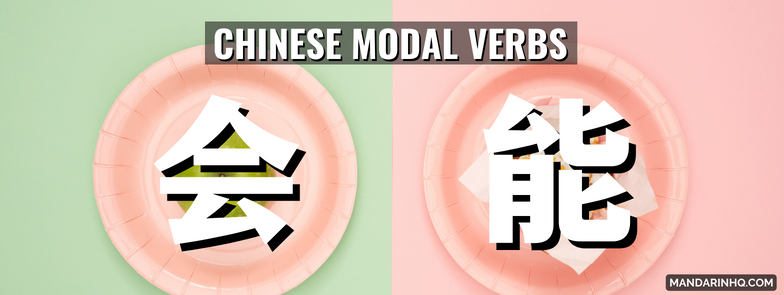In today's lesson, we'll be diving into the fascinating world of Chinese grammar as we uncover the key differences between 会 (huì) and 能 (néng).
These two words can be quite confusing for learners, as they both relate to the concept of ability. However, as you'll see in the video below, they are used in different contexts and carry distinct nuances.
The Usages of 会 (huì) and 能 (néng)
The Chinese Modal Verbs "会 (huì) "and "能 (néng)" both mean "can" or "to be able to".
1. "会" (huì) is used when talking about learned skills or abilities, such as speaking a language or playing an instrument. For example:
- 我会说中文。 (Wǒ huì shuō zhōngwén.) - I can speak Chinese.
- 他会弹吉他。(Tā huì tán jítā.) - He can play the guitar.
2. "能" (néng) is used when talking about physical capabilities or permissions, such as being able to lift something heavy or being allowed to do something. For example:
- 你能帮我搬这个箱子吗? (Nǐ néng bāng wǒ bān zhège xiāngzi ma?) - Can you help me move this box?
- 我能现在下班了。(Wǒ néng xiànzài xiàbān le.) - I can get off work now.
Let's look at some examples to better understand the differences between "会" and "能":
1. 我会开车,但是我现在不能开车。 (Wǒ huì kāichē, dànshì wǒ xiànzài bùnéng kāichē.) - I can drive (I have the skill), but I can't drive right now (maybe due to a temporary restriction or physical limitation).
2. 他会弹吉他,但是他不能在图书馆里弹。 (Tā huì tán jítā, dànshì tā bùnéng zài túshūguǎn lǐ tán.) - He can play the guitar (he has the skill), but he can't play it in the library (due to a rule or restriction).
3. 我会冲浪,但是我不能在暴风雨中冲浪。(Wǒ huì chōnglàng, dànshì wǒ bùnéng zài bàofēngyǔ zhōng chōnglàng.)- I can surf, but I can't surf in a storm.
And that's it! Now you know the key differences between "会" and "能" in Chinese.
Key takeaway: "会" is used for learned skills or abilities, while "能" is used for physical capabilities or permissions. So keep practicing, and you'll master these modal verbs in no time!
You might also find these posts interesting:

